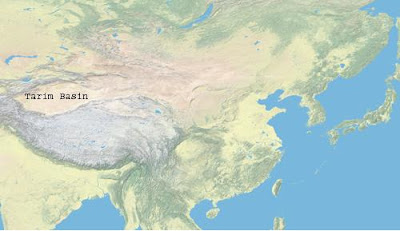The Future of North Korea’s Nuclear Weapons Program
For the last few years, many countries have raised concerns about North Korea's nuclear programs and attempted to negotiate and cooperate with North Korea.
It all started in 2006, when North Korea carried out a nuclear testing explosion. The U.N. has imposed sanctions against North Korea ever since. Through its nuclear programs, North Korea seeks to "bolster its regime and raise its stature against its main perceived adversary, the United States." North Korea's refusal to return to the six-party negotiations has further created the debate as to
what the United States must do about it.
what the United States must do about it.
President of South Korea, Lee Myung-Bak, recently suggested a package deal, the so-called "great bargain" proposal, in order to resolve this issue. This proposal aims for "a freeze of Pyongyang's missile programs and the resolution of the issue of Japanese abducted by the North" according to a Oct 10th article in the Korea Herald. If North Korea follows this deal, it will receive "security guarantees and economic aid" from other countries in return (Korea Herald). Japanese Prime Minister Hatoyama showed a strong support for this proposal at the summit with President Lee on October 9, 2009. They both concurred with the idea that North Korea should change its attitude. President Lee also showed an optimistic view on North Korea's return to the talks, yet he agreed that the sanctions should be implemented until North Korea promises for disarmament. Recently, Kim Jong-il, the leader of North Korea, mentioned that it would possibly return to the six-party negotiations, contingent upon the outcome of bilateral discussions with the United States. In response, the U.S. said it would accept this deal only if "the dialogue is intended to persuade Pyongyang to return to the six-party talks."
There will be a three-way summit among China, South Korea, and Japan in Beijing on October 10, in order to discuss this package deal more in detail, as well as brining up other issues regarding East Asian community. One proposal that Hatoyama made was to "build an EU-style East Asian Community" that will foster mutually beneficial development in East Asia in the future (Korea Herald). Some of the other proposals include a stronger relationship between South Korea and Japan.
- Submitted by S. Cho (CAS'12)


Comments
Post a Comment
We follow the House Rules as outlined by the BBC here.